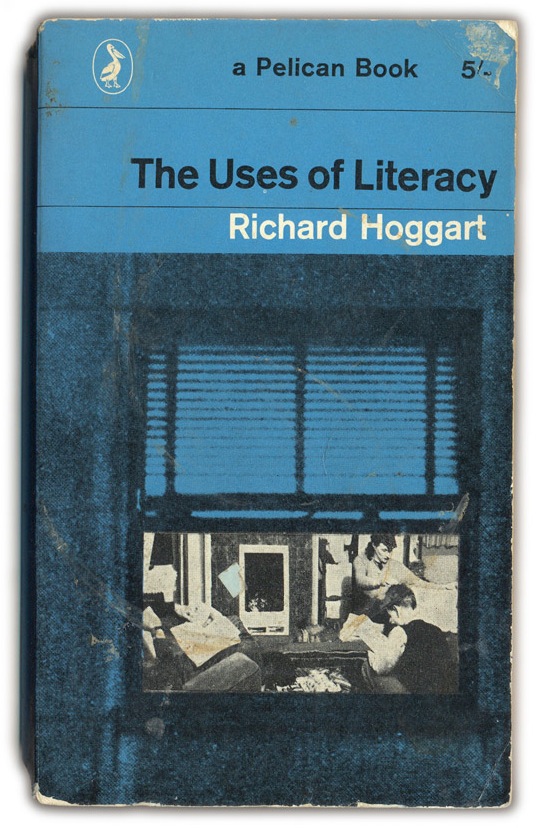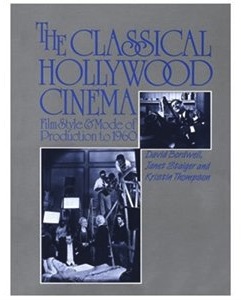The Aesthetic Turn: Cultural Studies and the Question of Aesthetic Experience
This is the first post in “The Aesthetic Turn,” a new Antenna series on cultural studies and media aesthetics. Our purpose here is to pose an interesting question and invite people to respond, as series guest editor Kyle Conway writes about below.
 One of cultural studies’ preoccupations—and really, this goes without saying—is the audience. Works as early as Richard Hoggart’s Uses of Literacy (1957) emphasized the value of asking what readers do with what they read (or listeners with what they hear, or viewers with what they see), rather than presuming to deduce their reactions from the texts themselves. From Hoggart to the CCCS to encoding/decoding to the Nationwide project to textual poaching to acafandom to spreadability—the through-line is clear.
One of cultural studies’ preoccupations—and really, this goes without saying—is the audience. Works as early as Richard Hoggart’s Uses of Literacy (1957) emphasized the value of asking what readers do with what they read (or listeners with what they hear, or viewers with what they see), rather than presuming to deduce their reactions from the texts themselves. From Hoggart to the CCCS to encoding/decoding to the Nationwide project to textual poaching to acafandom to spreadability—the through-line is clear.
In this context, I want to ask a pointed question about aesthetics. I have been teaching a graduate seminar this semester on production culture and aesthetics, a topic that was inspired in part by Shawn VanCour’s excellent Antenna post on the aesthetic turn in media studies. He argues for “the value of a specifically production-oriented approach,” and although I agree, I was more struck by his description of how the media effects researchers from radio’s early years were asking questions about aesthetics. They were concerned with media’s experiential dimensions, and thus they brought “aesthetics” back to its Greek roots (it derives from αἰσθάνομαι, which refers to perception or experience).
 Indeed, this question of experience is not new. Aristotle posed it in his Poetics, where he was concerned with tragedy’s ability to lead an audience to a point of catharsis. Rudolf Arnheim posed it in his book on radio, where he asked about the psychology of the listener, whom he assumed to be passive. David Bordwell posed it in the first section of The Classical Hollywood Cinema, where he proposed that people watching a film make and test a series of hypotheses as a way to make sense of its plot and structure. This list is far from complete—in fact, it’s really just a reflection of the syllabus from my media aesthetics seminar.
Indeed, this question of experience is not new. Aristotle posed it in his Poetics, where he was concerned with tragedy’s ability to lead an audience to a point of catharsis. Rudolf Arnheim posed it in his book on radio, where he asked about the psychology of the listener, whom he assumed to be passive. David Bordwell posed it in the first section of The Classical Hollywood Cinema, where he proposed that people watching a film make and test a series of hypotheses as a way to make sense of its plot and structure. This list is far from complete—in fact, it’s really just a reflection of the syllabus from my media aesthetics seminar.
But there is at least one aspect of this experiential dimension that cultural studies scholars have largely neglected. It seems to me (and I’m hedging for a reason) that part of our experience of a media object exists prior to and outside of language. Let’s call it a “gut reaction,” but let’s take that metaphor at face value—it’s a moment when our body registers a response that we can’t quite capture in words. Language here does both too little and too much—too little in that we don’t have words to describe what we feel in our gut (at least not completely), and too much in that the words we do have always mean more than we intend. (When we use a word, we must account for how the people we are responding to used it, just as that they accounted for its prior uses. The effect is additive: words accumulate meaning in ways beyond any individual’s control.) We must translate from our gut to our mind (that is, from raw experience to an account that’s mediated by language) and we lose something in the translation.
So why do I hedge above? Why “it seems to me”? Even my assertion that we experience media this way is subject to the double bind of language, its simultaneous deficiency and excess. This is an idea we can intuit, but—it seems to me—we can’t describe it without denaturing the experience itself. So what is the analytical value of this intuition? Are there ways to observe this experience directly or indirectly? What insight can it provide into the broader range of phenomena related to audiences? What insight can it provide into the moment of production VanCour highlights? Finally, what does cultural studies stand to gain from examining the aesthetic experience of the media?
*****
I’d like to invite other Antenna contributors to continue this discussion. I’ve contacted a handful of potential contributors already, but I want to extend the invitation more broadly. If you are interested, please feel free to email me (conway dot kyle at gmail dot com) or the editors. You needn’t respond to the questions I’ve posed here, although I’d love to hear others’ thoughts. I’m eager to encourage as rich and wide-ranging a discussion as possible.


